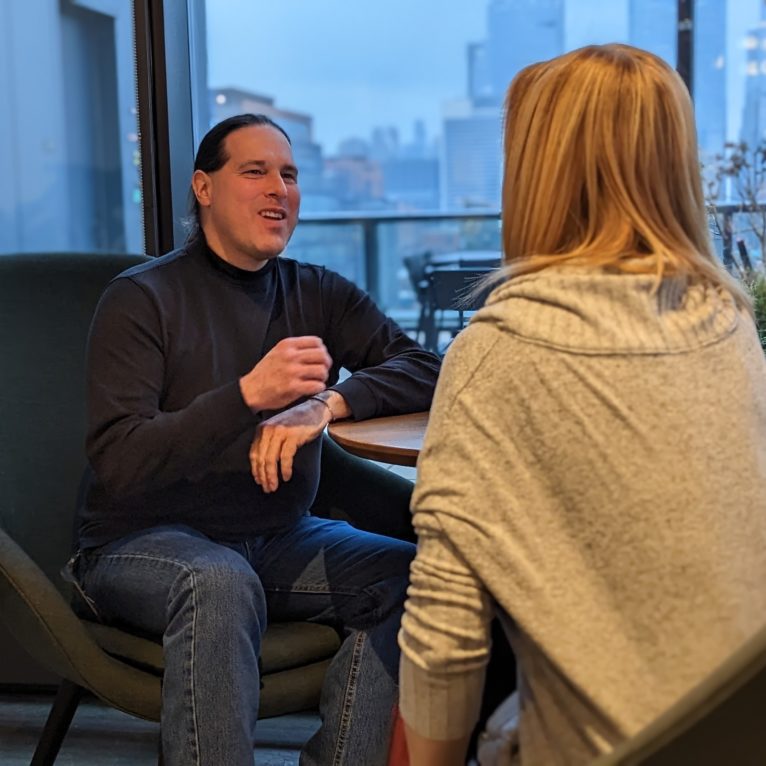
Share article:
Tags:
How to hack your habits, energy and self-control to get your 2023 goal
Good news! – hope is not lost for our 2023 goals. Goals – no matter the size, all need one thing – change. Change in our behaviours and actions that will lead us towards goal success.
Each morning we wake up with a certain amount of willpower, motivation and energy. Imagine each as a bottle in front of you, each with their own label. Life and its’ demands deplete all 3 as you go through the day – once the bottle’s empty, it’s empty. The higher the demands, the less resources you have left to do that NEW thing.
Daily life just doesn’t leave any of these spare regularly enough to make good goal progress. The answer – don’t rely on them.
70-80% of our daily actions and decisions are carried out by our subconscious (1). They show up as our habits and routine – like driving to work and not remembering the journey. We are programmed to put regularly repeated actions and behaviours into our automatic system to save time and energy thinking about them. This leaves as much free space as possible in our conscious thinking to tackle more challenging tasks. You have an efficient system! Use it.
This gives you the perfect way to bypass the need for willpower and energy. If you can just get your goal habits automated and part of your daily routine – like that car journey – then even on a draining day you can keep on track.
You need this hack.
Step one
Break down your goal
You’ve probably already done this but keep going, dissect it into the sequence of tiny steps and behaviours needed to succeed. Be clever – use your strengths. When you are planning the steps to success use the strengths that you already have in your tool kit – want to get fit, choose the sport or movement that you find most energising and gain an added motivation point (See the articles on strengths for more info)
Step two
Hack your energy system
Of 9000 people interviewed, lack of energy was the main barrier to achieving goal**. You have a natural energy cycle (‘circadian rhythm’) so design your goal pursuit around them. You and your body will have a natural preferred get up time and time to go to sleep. These have been shown to map out your energy cycle:
Prime Time – This is a 2-3 hour window where you are at your best ! Physically, mentally and emotionally. This window is your best decision making, highest willpower time and can even beat procrastination!
Early risers – 5am to 7.45am – you can almost walk straight into the office at your best! Those on the later scale, say waking up at 11am, take a few more hours (said to be around 4pm) before they get to their prime***.
Low time – it’s a thing. And am sure you are very aware of yours. About 1-2 hours long and is needed to balance the days energy cycle. Interestingly, it’s said to be great for being aware of our mood, have empathy for others and being creative. Accept it, relax, it wont be the most productive 2 hours of your day.
Alpha time – All you need to know is that this half awake half asleep time of your day is what Albert Einstein used to get his best ideas – the dream like state is great for problem solving.
Think back – when is your prime time?
Step three
Improve your self-control
not only can this be enhanced, but if improved in one area self-control is improved in ALL areas – fact****!
So, improving self-control in your motor control WILL improve your overall self-control. Take a simple task to start the process:
Try using your non-writing hand to do everyday tasks for two weeks, one if you are already sceptical. The most important point of this is that Through this fun experiment you’ll prove to yourself that change is possible!
See it as self-control gym. Use the self-control muscle everyday with a simple task to get gains!
Step four
Hack your habits
Take the first smallest action or behaviour you need and follow this:
- First, Add it NEXT to, after or before, an existing habit that’s part of your daily routine. The existing habit becomes the cue for the new one.
- Make the task simple at first. Give the effort your full attention, be fully aware of the process, of the cue, and of the task itself.
- Then REWARD yourself (yes, genuinely) for the effort and success for EACH time you do it. Reward releases that lovely stuff dopamine – the feel good hormone!
An existing habit cues the new behaviour and by repetition and the feel good factor – it becomes automatically cued. Winning.
Try – add 5 squats to your coffee routine by doing them whilst the kettle boils or sit down and give your new business idea your undivided attention for the 20 minutes that your dinner cooks – you get the idea START SMALL and BUILD ON IT.
Prove to yourself that if you can make 5 squats automatic then you can add to the complexity of the task.
Our typical day of work, home, family and friends will always be in conflict with goal progress. Time to hack the system. Design your day to cheat willpower.
References
- Kernbach, S. (2022). Towards a science of action-concepts and theories to reduce procrastination and overcome the intention-action-gap. European Academy of Management Annual Meeting (EURAM).
- Kühnel, J., Bledow, R. & Kuonath, A. Overcoming Procrastination: Time Pressure and Positive Affect as Compensatory Routes to Action. J Bus Psychol (2022).
- Berkman, E., Donde, R., and Rock, D. (2013). A social neuroscience approach to goal setting for coaches. In: Megginson, D., Clutterbuck, D., & David, S. A. (2013). Beyond goals : effective strategies for coaching and mentoring. Gower Publishing Limited.
- Fogg, B J. (2019) Tiny habits : the small changes that change everything. Boston : Houghton Mifflin Harcourt.
Further reading
- Arlinghaus, K. R. and Johnston, C. A. (2018). The importance of creating habits and routine. Behaviour medicine review
- Gropel, P., & Steel, P. (2008). A Mega-Trial Investigation of Goal Setting, Interest Enhancement, and Energy on Procrastination. Personality and Individual Differences, 45, 406-411.
- Harvey, A. G., Callaway, C. A., Zieve, G. G., Gumport, N. B., and Armstrong, C. C. (2022). Applying the Science of Habit Formation to Evidence-Based Psychological Treatments for Mental Illness. Perspectives on Psychological Science 17(2):572-589.

